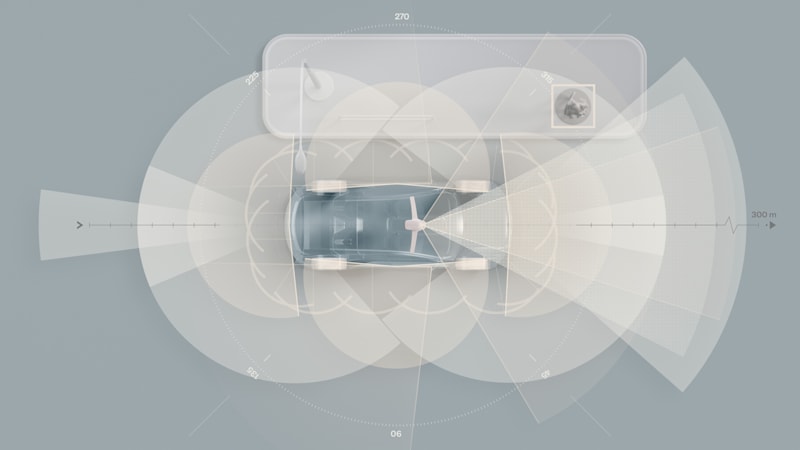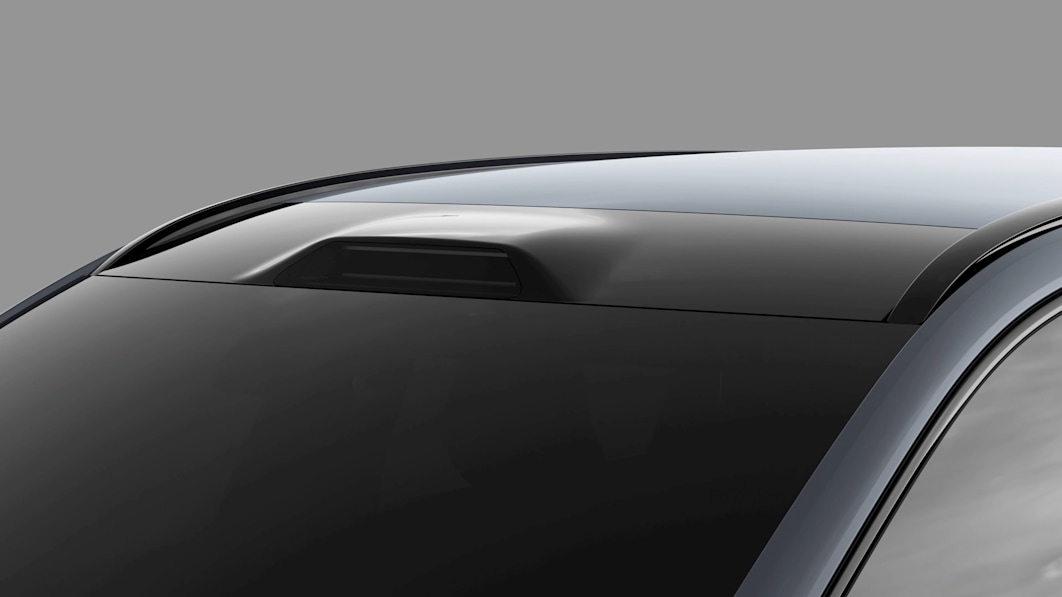DETROIT — Volvo Cars plans to make lidar sensors standard equipment in a new generation of its XC90 SUV next year as part of a strategy to deploy more advanced safety and automated driving technology based on accurate images of the world around it. vehicle.
Volvo Cars’ decision to fold lidar sensors into the base price of its vehicle is a gamble that customers will pay for the extra capacity. It has been called a “turning point” by some in the industry.
The Swedish brand, owned by the Chinese Geely group, is taking a very different path from rival Tesla Inc, which has eschewed lidar and radar and focuses on just cameras and software for its automated driving systems.
The startup Luminar Technologies Inc, a self-driving car sensor startup, will provide Volvo Cars Iris lidar and Sentinel software along with software from Volvo in the electric XC90 SUV that will be built in South Carolina and hit the market in 2022, the companies said.
The new technologies are designed to address traffic situations that often lead to serious injuries and deaths. Over time, the technology will become more capable and intervene more frequently to avoid collisions, the companies said.
“Having this hardware as standard allows us to continuously improve safety features and introduce advanced autonomous drive systems,” said Volvo Cars Chief Executive Hakan Samuelsson in a statement.
Lidar sensors, which use pulses of laser light to create accurate images of the environment around the car, are considered essential by many car manufacturers to detect and avoid obstacles in advanced driver assistance systems and ultimately in fully automated vehicles.

Complete sensor installed on electrical successor XC90
Until now, lidar has been too expensive for automakers to implement as anything other than an option that costs extra. Luminar CEO Austin Russell said the price for its lidar is in the order of $1,000 per unit.
Volvo Cars’ chief technology officer, Henrik Green, said cost is not the focus for the Swedish car brand. While the price of the technology will drop over time as volumes grow, the rollout will accelerate the use of automated services that the company can charge.
Green said subsequent vehicles will add the lidar package as standard, continuing Volvo Cars’ history of being the first to standardize many safety features, including three-point seat belts and side airbags.
“This is kind of a turning point for the industry,” Russell said in an interview. “You don’t have an airbag option package. You don’t have a seat belt option package. Why would you have a life-saving technology option package?”
Russell declined to say what the deal will mean financially for Luminar or discuss potential volumes, but the XC90 is Volvo Cars’ best-selling car in the US and last year’s third most popular worldwide with nearly 92,500 sales.
Luminar said in March it had signed a deal with a Volvo Cars software unit, Zenseact, to offer a combination hardware-software system to control autonomous functions for Volvo vehicles. Luminar said at the time that the system would also be sold to other car manufacturers.
The system will target automated driving, but only on highways, Luminar said. It will use a computer chipset from Nvidia Corp and also use cameras and radar sensors in addition to Luminar’s lidar unit, but can be made to work with the cameras and radars that many automakers have already included in their vehicles.
SAIC Motor Corp, China’s largest automaker, has said it will bring self-driving vehicles to that market next year in partnership with Palo Alto, California-based Luminar.
Founded in 2012, Luminar is one of several lidar manufacturers in the US that have gone public in the past year through reverse mergers with blank check companies.
(Reporting by Ben Klayman in Detroit; editing by Matthew Lewis)
Related video:
